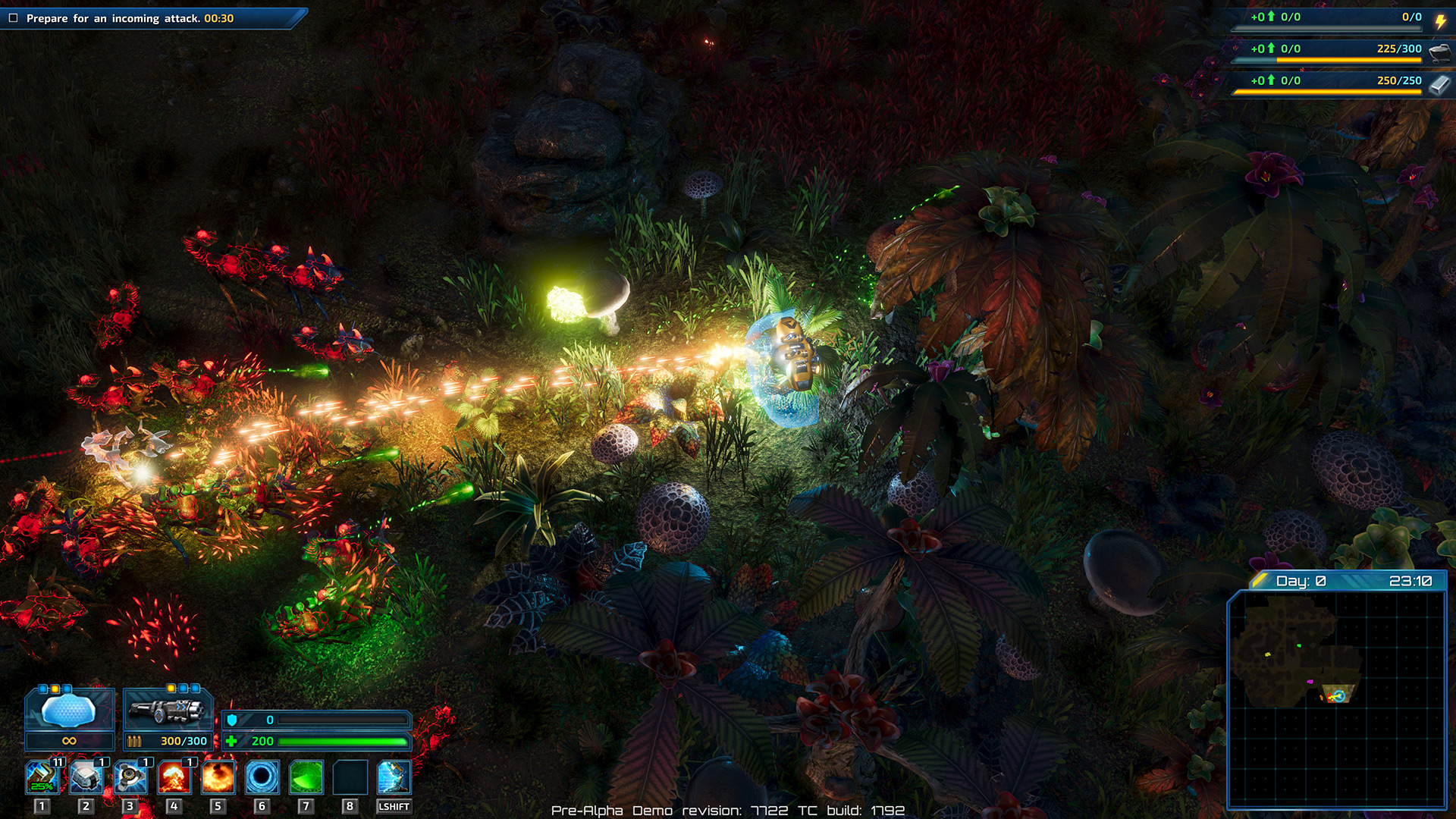The Riftbreaker verdict: Continue Playing
Two hours is hardly enough time to see everything The Riftbreaker has to offer, and I’m looking forward to spending dozens of hours in the game, especially when it adds multiplayer.
What kind of game is The Riftbreaker?
The Riftbreaker successfully blends gameplay mechanics from a variety of genres including real-time strategy, action RPG, and tower defense. I found it to be quite unique and offers a bit of everything I enjoy from other games.
What games are like The Riftbreaker?
Personally I haven’t played a game that is just like The Riftbreaker, since it borrows mechanics from multiple genres. The closest game I can think of is Factorio, but it’s not as in-depth when it comes to building and automation. There’s a bit more action with your character and more emphasis on the tower defense aspect.
Who would enjoy The Riftbreaker?
Gamers who always wanted a game that blends tower defense with base building and crafting/survival with a pinch of action RPG. The systems aren’t very deep, but The Riftbreaker does a great job blending it all into one game.
Who wouldn’t enjoy The Riftbreaker?
There is quite a bit to micromanage in The Riftbreaker and things to keep tabs on. Like an RTS, you’ll have to manage your resources and tech tree, while scouting and building. I’d say if you aren’t a fan of RTS games or even Factorio, you probably won’t enjoy The Riftbreaker. It’s way less action RPG and more strategy/base building.

The Riftbreaker two-hour review:
I was really excited when The Riftbreaker was first unveiled and was pleased to find that it lived up to my expectations. I’ve put hundreds of hours into games like Factorio, Warcraft/Starcraft, 7 Days to Die, Valheim, Sanctum series, Bloons series, Tower Wars, Orcs Must Die, etc. so I really looked forward to a game that blends aspects from each one. What I really enjoyed about The Riftbreaker is that its developer managed to find a way to balance all the different gameplay mechanics, without it becoming too overwhelming for the player. The tower defense aspect isn’t overly complicated or strategic, base building is fairly straightforward and not very limited, controlling your character in combat is intuitive and fun. It does have a pretty complex tech tree, but researching isn’t tedious.
The tutorial does a great job easing the player into the game, slowly introducing each of the game’s varied mechanics. The process of expanding your base to gather more resources is made a lot more seamless since you are able to set up a gateway to instantly teleport to that location if it falls under attack or you want to continue building. Even still, there is quite a bit to manage on your own however, and I really look forward to seeing how The Riftbreaker handles multiplayer. Having even just one more person to help out would make the game much more manageable.
It’s worth mentioning that only playing two hours of The Riftbreaker is hardly enough time to become an expert at all the game’s systems. I imagine that with a few more hours of playtime, things get easier to manage. Towards the end of my two-hour playthrough, I decided to explore the entire map to see just how large it gets (and it’s pretty big!) and it appears there’s a mechanic to expand even further beyond the initial map. The tech tree is also expansive, allowing you to upgrade base technologies, weapons, and more. There’s a lot to explore in The Riftbreaker and I’m excited to jump back in for a long-term review.





